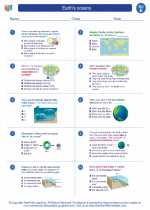Inflammation: An Overview
Inflammation is the body's natural response to injury, infection, or irritation. It is a complex biological process that involves the immune system, blood vessels, and various signaling molecules.
Causes of Inflammation
Inflammation can be caused by various factors, including:
- Infection
- Injury
- Physical trauma
- Chemical irritants
- Allergens
- Autoimmune disorders
Signs and Symptoms of Inflammation
Common signs and symptoms of inflammation include:
- Redness
- Swelling
- Heat
- Pain
- Loss of function in the affected area
Types of Inflammation
There are two main types of inflammation:
- Acute inflammation: This type of inflammation occurs rapidly and is typically resolved within a few days. It is a short-term response to injury or infection.
- Chronic inflammation: Chronic inflammation is a long-term response that can last for weeks, months, or even years. It is often associated with conditions such as arthritis, asthma, and autoimmune disorders.
Study Guide for Inflammation
Key Concepts
- What is inflammation?
- What are the causes of inflammation?
- What are the signs and symptoms of inflammation?
- What are the main types of inflammation?
Review Questions
- What is the body's natural response to injury, infection, or irritation?
- List three causes of inflammation.
- What are the common signs and symptoms of inflammation?
- What is the difference between acute inflammation and chronic inflammation?
Studying inflammation is crucial for understanding various health conditions and the body's immune response. It is important to grasp the causes, types, and symptoms of inflammation to appreciate its role in the human body.
.◂Science Worksheets and Study Guides Fifth Grade. Earth's oceans
Study Guide Earth's oceans
Earth's oceans  Worksheet/Answer key
Worksheet/Answer key Earth's oceans
Earth's oceans  Worksheet/Answer key
Worksheet/Answer key Earth's oceans
Earth's oceans  Worksheet/Answer key
Worksheet/Answer key Earth's oceans
Earth's oceans  Vocabulary/Answer key
Vocabulary/Answer key Earth's oceans
Earth's oceans  Vocabulary/Answer key
Vocabulary/Answer key Earth's oceans
Earth's oceans 

 Worksheet/Answer key
Worksheet/Answer key
 Worksheet/Answer key
Worksheet/Answer key
 Worksheet/Answer key
Worksheet/Answer key
 Vocabulary/Answer key
Vocabulary/Answer key
 Vocabulary/Answer key
Vocabulary/Answer key

The resources above cover the following skills:
EARTH AND SPACE SCIENCE
Earth’s Systems
Identify the distribution of freshwater and salt water on Earth (e.g., oceans, lakes, rivers, glaciers, ground water, polar ice caps) and construct a graphical representation depicting the amounts and percentages found in different reservoirs.